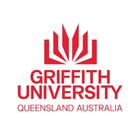Master of Medical Research
- Posted by Griffith University
- Home
- Courses
- Griffith University
- Master of Medical Research
Master of Medical Research
This degree provides graduates with the opportunity to undertake advanced study and research. You will gain a thorough training in applied scientific research and methodology and be prepared for higher degree by research studies and professional employment in the research field. The program consists of coursework (40 credit points) and…
Categories
COURSE DESCRIPTION
This degree provides graduates with the opportunity to undertake advanced study and research. You will gain a thorough training in applied scientific research and methodology and be prepared for higher degree by research studies and professional employment in the research field. The program consists of coursework (40 credit points) and a research component (80 credit point dissertation).
The coursework will provide critical evaluation of research and presentation, develop the student’s knowledge and understanding of statistical analyses techniques as applied to scientific research and develop an awareness of research proposal design and background. Students will have the opportunity to develop a research proposal including aims, methodology and a literature review.
The dissertation involves applied research on a specific project, a seminar and thesis describing the research in detail.
My career opportunities
You will be prepared for professional employment in public and private sector research positions. You will also be able to continue with higher degree studies and pursue a research career.
Pathways to further study
Students who successfully complete the Master of Medical Research program will be eligible to apply for entry to doctoral research programs.
REQUIREMENTS
To be eligible for admission to this program, a student must fulfil the following criteria:
hold a Bachelor degree in medical science, biological science, pharmaceutical science or a related health discipline from Griffith University or from another university or institution with a GPA of at least 5 (using a 7-point scale) or equivalent.
The minimum English Language proficiency requirements for applicants to Higher Degree Research (HDR) programs are as follows:
- A minimum overall band score of 6.5 on the IELTS (Academic) with no band score less than 6.0
- OR a minimum score of 575 on the paper-based TOEFL including a score of no less than 5.0 on the TWE
- OR a score of 79 on the internet-based (iBT) TOEFL with no sub-score less than 19
- OR a score of no less than 3+ in each skill of the ISLPR (conducted by ISLPR Language Services only)
- OR a minimum overall score of 176 (no score less than 169) on C1 Advanced (formerly Cambridge Certificate in Advanced English) or C2 Proficiency (formerly Cambridge Certificate of Proficiency in English)
- OR an overall score of 58 in the Pearson Test of English (Academic) with no score less than 50.
EDUCATIONAL INSTITUTION
Griffith University is ranked in the top 2% of universities worldwide and strives to create a brighter future for all by prioritising innovation and social impact. We are committed to providing international students with quality education, guidance, and support. With Australia’s most awarded teachers, Griffith University offers a full suite of undergraduate, postgraduate and research degrees in areas including architecture, construction, and planning; business and government; criminology and law; education; engineering, IT and aviation; humanities, languages and social science; medicine, dentistry and health; music and performing arts; science and environment; visual and creative arts.
Griffith University is ranked in the top 2% of universities worldwide and strives to create a brighter future for all by prioritising innovation and social impact. We are committed to providing international students with quality education, guidance, and support.
With Australia’s most awarded teachers, Griffith University offers a full suite of undergraduate, postgraduate and research degrees in areas including architecture, construction, and planning; business and government; criminology and law; education; engineering, IT and aviation; humanities, languages and social science; medicine, dentistry and health; music and performing arts; science and environment; visual and creative arts.




